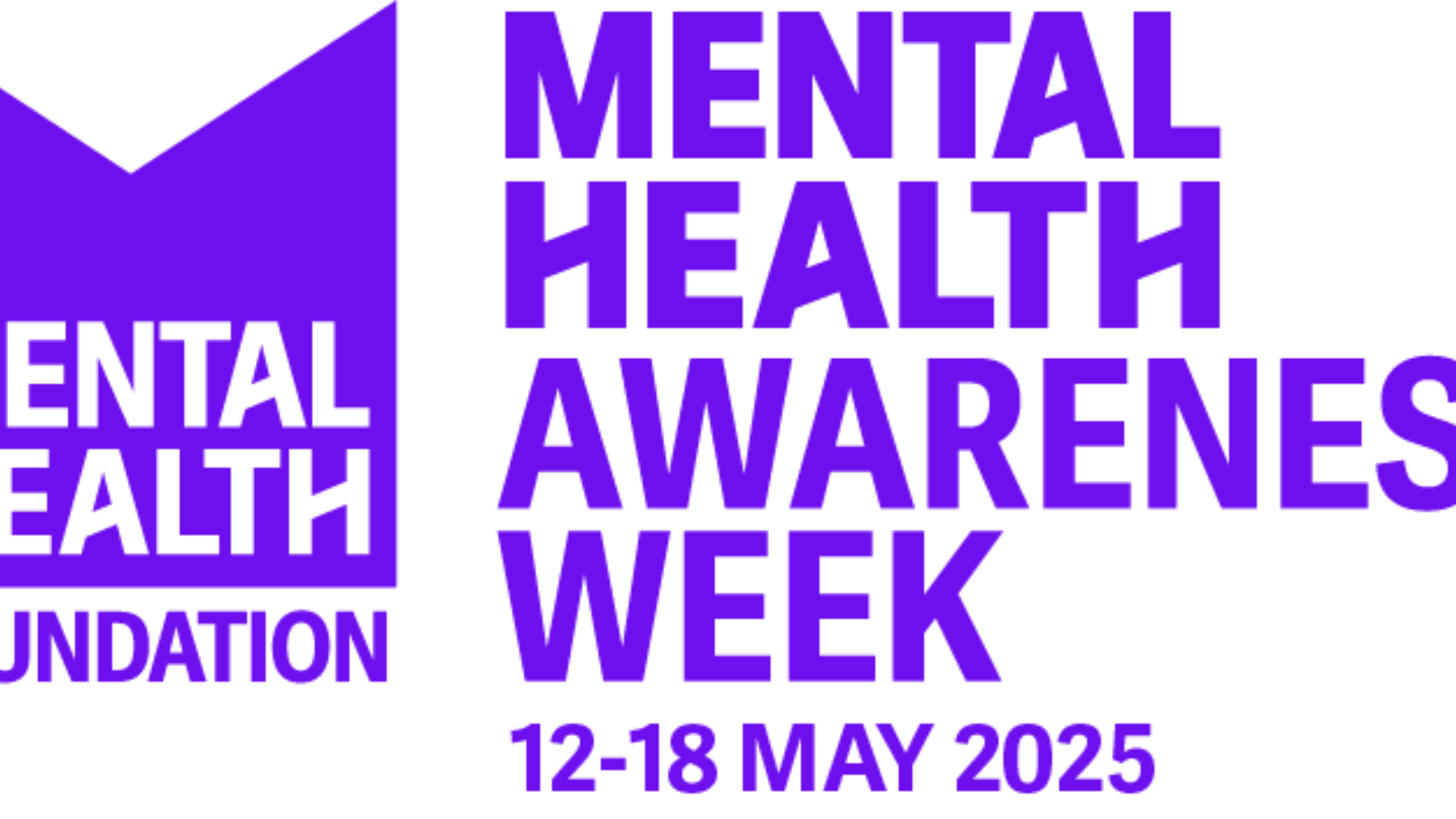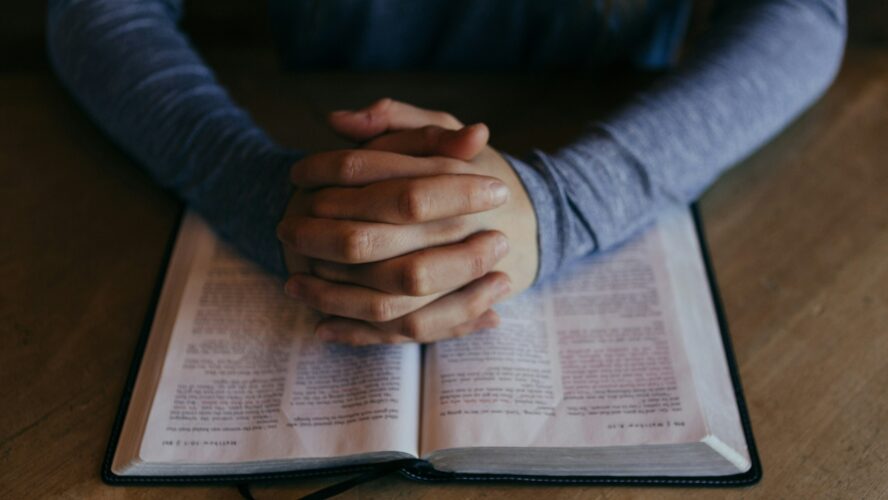
When is Mental Health Awareness Week 2025?
This year’s Mental Health Awareness Week is between 12–18 May 2025.
What is this year’s Mental Health Awareness Week theme?
This year’s theme is one we’re particularly passionate about at CAP: community.
Why is community important for our mental health?
Poverty, debt and mental ill-health – which are often very closely linked – can be major causes of anxiety and loneliness, causing people to withdraw or isolate, feeling totally alone in an overwhelming situation.
But being part of a supportive and welcoming community does wonders for our mental health. There’s a unique kind of hope that is formed when we know we’ve got people in the highs and lows with us, encouraging and strengthening us along the way.
God wired us to need community – our nervous systems literally respond to the supportive presence of other people around us, and healing happens in ways it cannot in isolation. Community is also a vital part of experiencing belonging, safety and purpose, all of which have a massive positive impact on our mental wellbeing.
That’s why CAP is passionate about equipping local churches to support their communities. They’re placed right in the centre of everything, offering holistic care, belonging and encouragement, showing people that no matter how dark things seem, they’re not alone, and there’s always hope.
How can I get involved this Mental Health Awareness Week?
There are lots of ways you can get involved this Mental Health Awareness Week, finding this kind of community in your local area or reaching out to others who may be in need of community themselves. Whether you’re looking for a new kind of community and exploring your different options this week, or are thinking about how you can extend community to those around you, here are some ideas:
Join a club or group that interests you
There are lots of groups out there based on interests, from art groups to choirs to running clubs such as Parkrun. Whatever your hobbies and passions are, why not see what groups are running in your area and go along to one? You could even learn something completely new, and if you like a goal, you could sign up with a goal in mind, such as running a 5k or raising money for a cause you care about. Meeting people with similar interests is a great way to make new friends, as you’ve got something in common you can get to know each other from.
Meet up with your colleagues outside of work
For many with full or part-time jobs, we spend a huge portion of our week with those we work with, so it can be easy to assume we know our colleagues well. However, when was the last time you shared what’s going on in each other’s lives, or had more than five minutes’ chat in the office kitchen or staff room? With the rise of remote work, it’s becoming harder to connect with colleagues about the day-to-day things, to check in and see how they’re doing. Why not take some time to invite a colleague or two for dinner or a cuppa and hear what’s going on outside of work.
Get involved with a local church’s activities
Whether you attend a local church or not, it’s worth checking to see what activities your local church(es) have going on. Often, they’ll have many opportunities you can get involved with, such as volunteering at a food bank, but also groups you can attend, such as parent and baby groups or youth, young adult or older adult groups. These are a great chance to meet people in the same life stage as you, who might be going through similar circumstances.
Throughout the year, your local church might also host special services at Easter or Christmas, as well as putting on events such as comedy nights, worship services, lunches, or family activity days. Keep an eye out for the ones that interest you, as you’ll likely meet people who you can connect with.
A local church is also a fantastic place to meet people in general, from a diverse range of backgrounds – it’s one of the few places where you’ll see people come together with a shared faith that otherwise may not have had the blessing of meeting.
Join a parent and child group
Joining a club based on a specific life stage means you can meet a community of people who are going through similar ups and downs as you. Perhaps you’ve got a young child, and are unsure how to meet other parents. Get yourself along to a local parent and child group – what better way to form a community than with those you can empathise with?
Take a course
Is there a skill you’d love to develop this year? This Mental Health Awareness Week, one way to promote community is to enrol on that course you’ve wanted to do for ages, whether it’s BSL (British Sign Language), photography, digital skills, or something completely different.
Don’t forget online community
Although engaging face-to-face promotes regulation, safety and connection, for many who are perhaps less able to get out and about or socialise, engaging online is a great way to stay in touch with others and build a supportive community.
Maybe you struggle with health issues or a disability, or find it difficult to engage with people in-person. There are many interest-based groups online, including social media and forums, as well as communities that are sharing the ups and downs of their mental and physical health journeys, neurodivergence, parenthood and more. Although not everything you see online is 100% reality, and we all only present the parts we’re comfortable sharing publicly, online spaces can still be a valuable and supportive place to learn together, share life and encourage one another.
Looking online is also an easy way to find local groups and activities in your area, too. Why not join a local group on your social media, and keep up to date with what’s going on in your village, town or city?
Check in with your neighbours and friends
It’s far too easy to assume that everyone has family and friends around them, but often that’s not the case at all. Maybe your neighbour’s family lives at the other end of the country or even abroad. Perhaps you could check in on your older neighbour who can’t get out as much anymore, and invite them round for a cup of tea or out somewhere local in the car, which might make getting out more accessible for them. You can also sign up to Age UK’s ‘Connect and Support Service’ to offer a regular listening ear to older people across the UK.
What about that friend you’ve not spoken to in a while? This Mental Health Awareness Week, make a note to send them a message and ask how they’re doing. We often think that if they wanted to, they’d make an effort to connect, but there are so many reasons – from being busy or ill or struggling with mental health – that someone may not have been able to reach out lately. Sending a message to let them know you’re thinking of them and offering connection could be a lifeline for both of you.
I’m struggling this Mental Health Awareness Week – what can I do?
If you’re struggling with your mental health and feel like you don’t have anyone you can talk to, you can find support for whatever you’re struggling with from organisations across the UK. Your GP is also there to offer support and signposting to professional support, if this is something you would like to explore. There are also community support groups in many areas, from informal ones you can find out about online, to support groups run by your local council.
If you’re feeling suicidal, please don’t wait to get help. Get in touch with local services such as NHS mental health crisis services (if you’ve had NHS support for your mental health before you may have been given a number to call for emergency support from your local crisis team), your GP, local Mind services, contact the Samaritans or contact 111 for urgent support. If you can’t keep yourself safe, please go to your local A&E department or phone 999.



